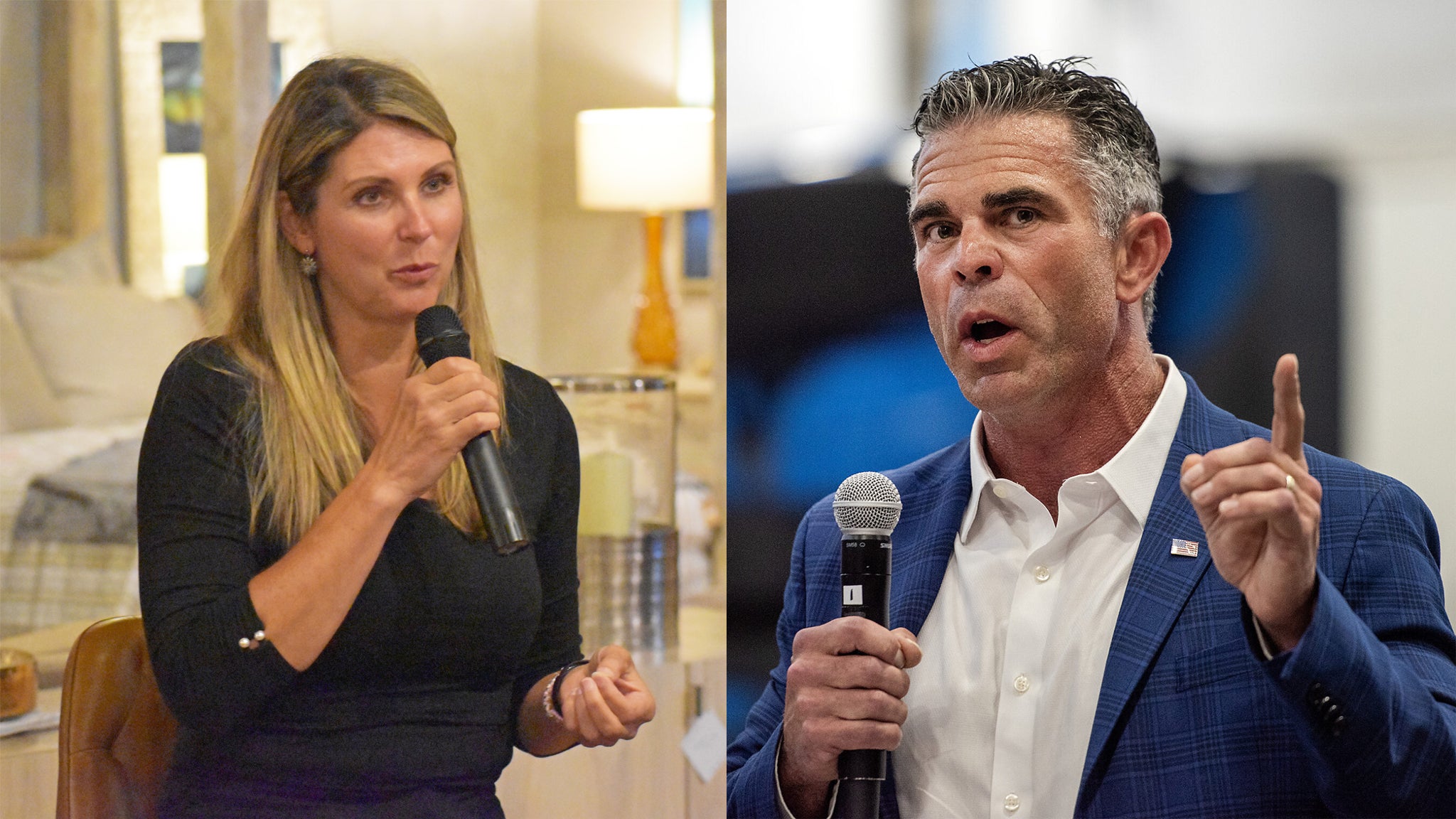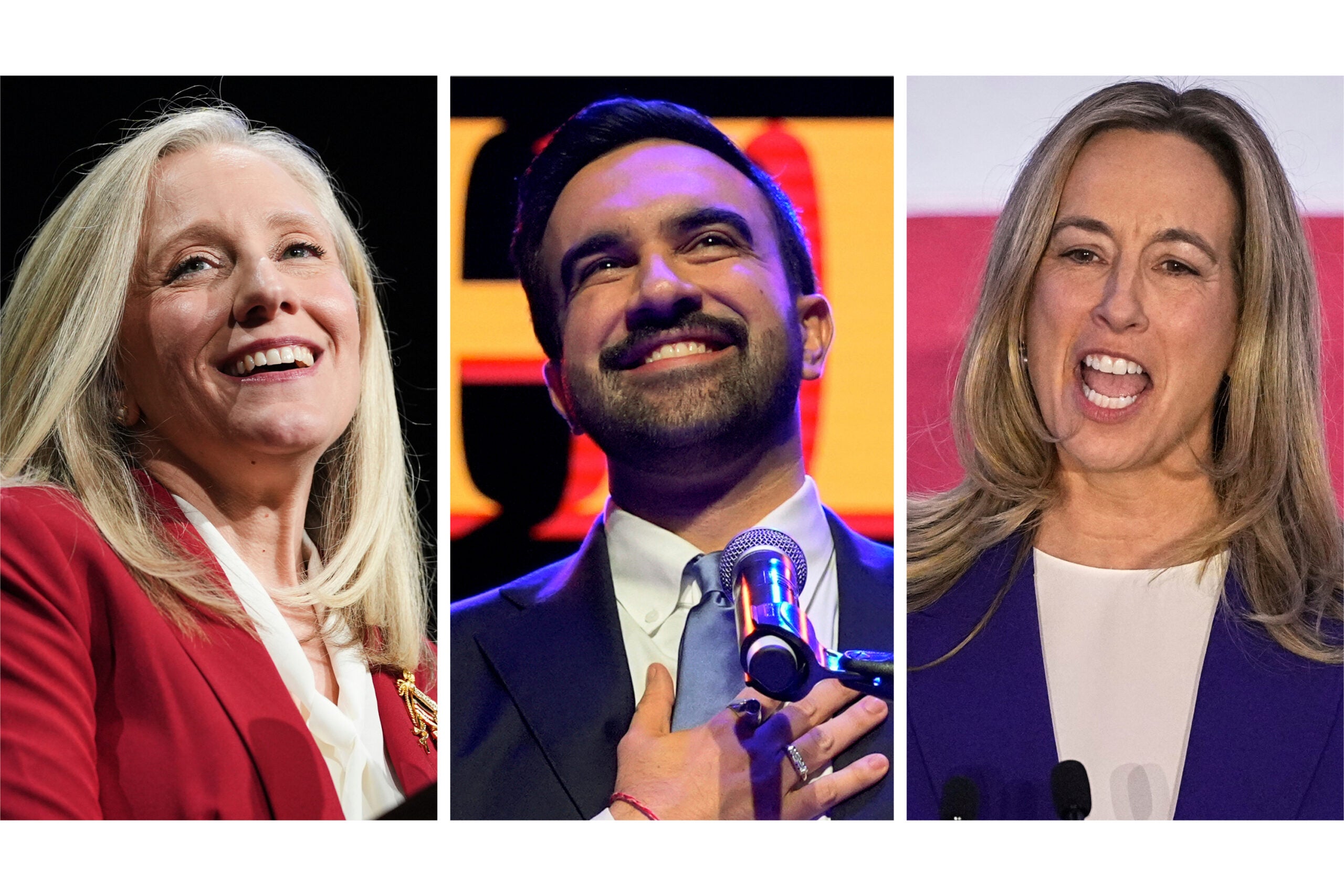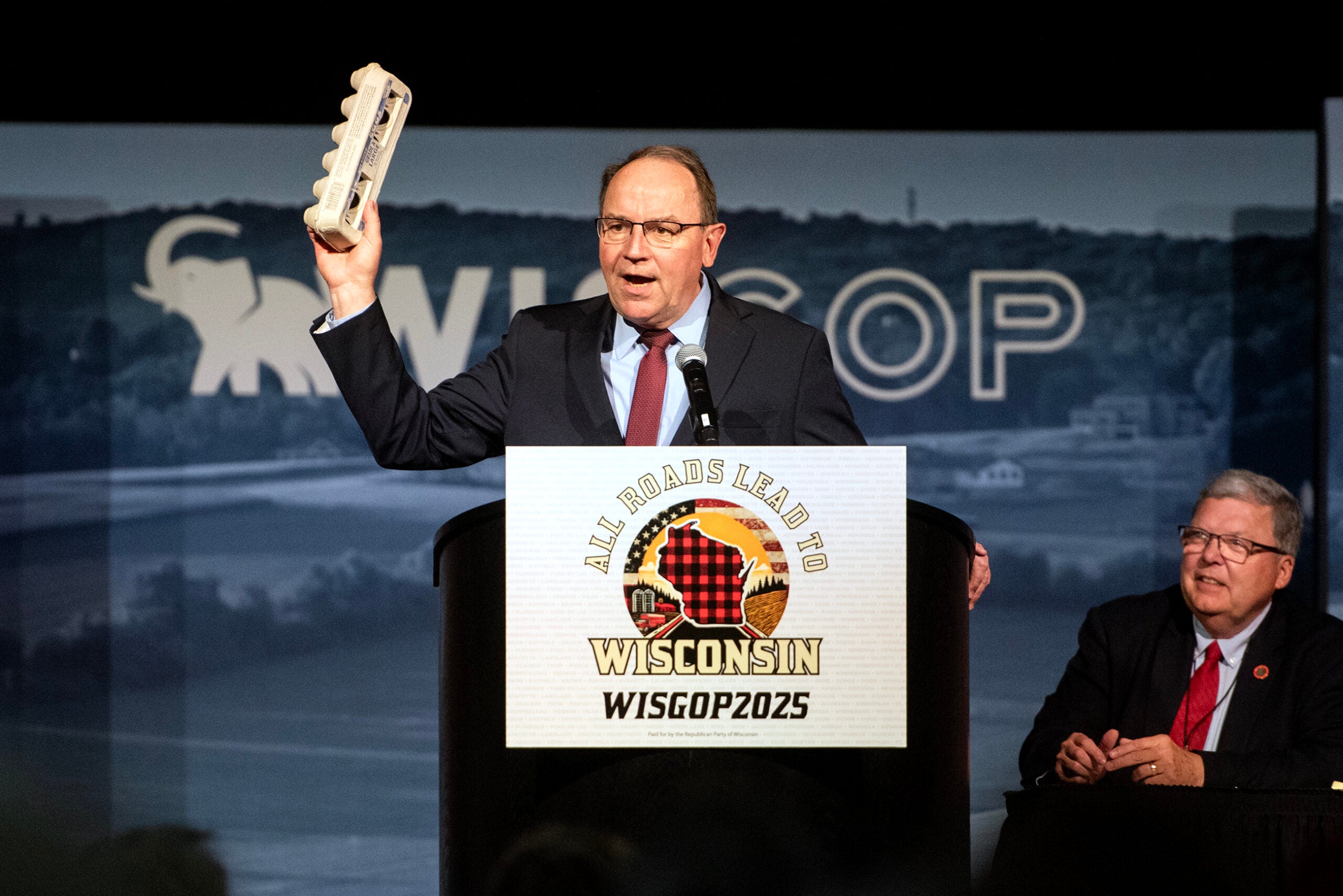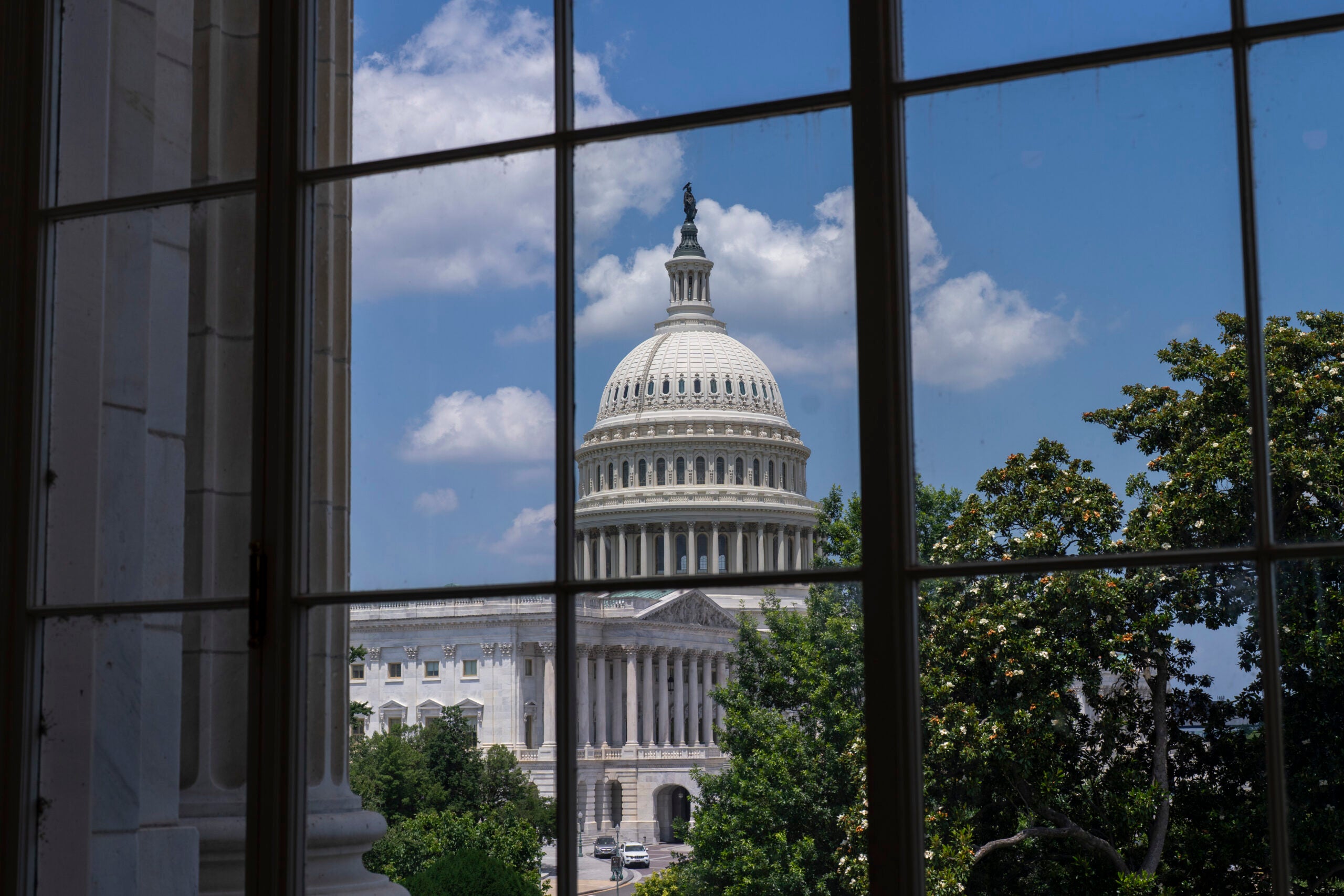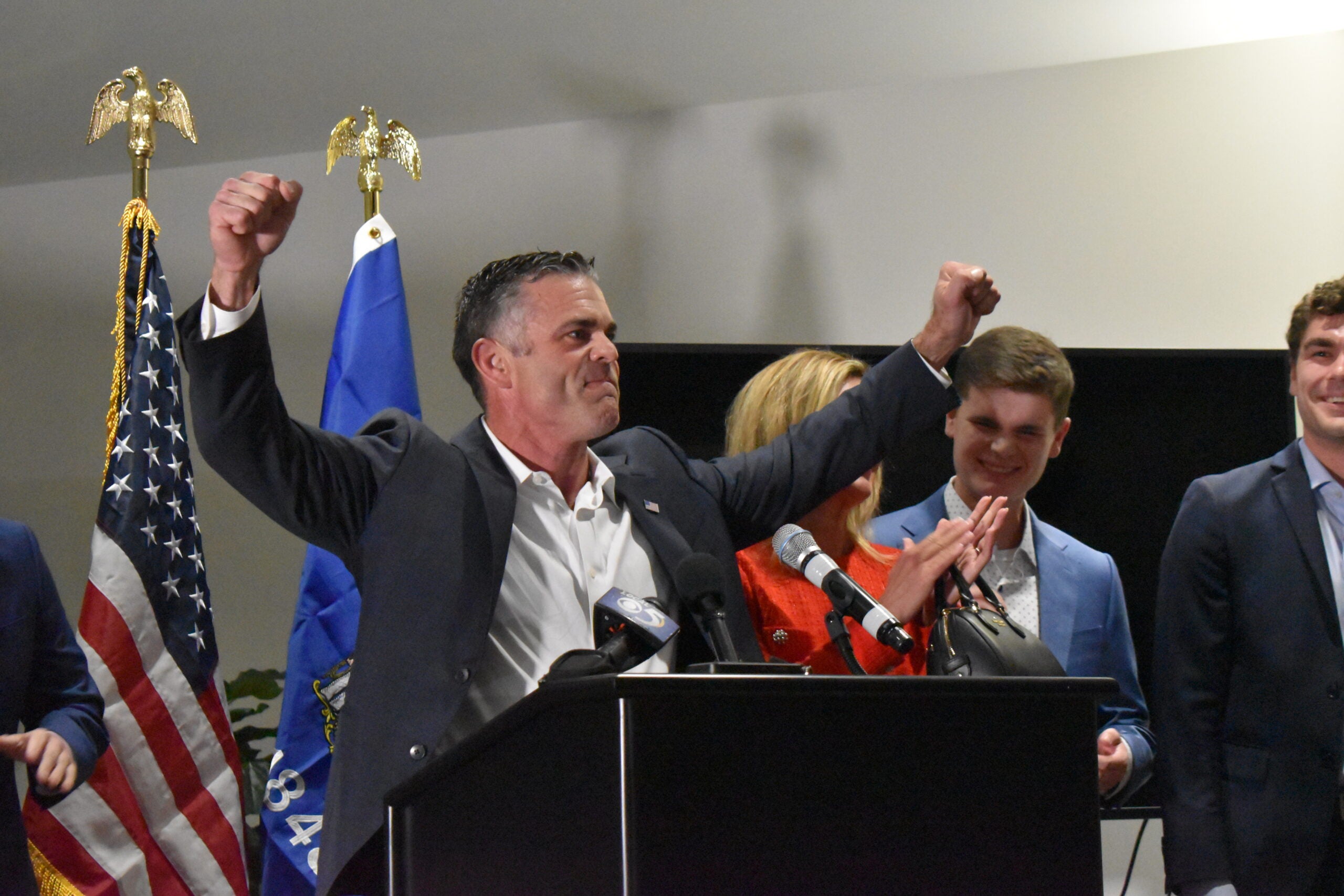Voters in northeast Wisconsin will choose a new representative in Congress next month, with both candidates for Wisconsin’s 8th Congressional District coming from the private sector.
Republican Tony Wied, a businessman from De Pere, and Democrat Kristin Lyerly, an OB-GYN from De Pere, are both running for the seat previously held by former U.S. Rep. Mike Gallagher, a Republican who resigned earlier this year.
Wied and Lyerly will each be on the ballot twice on Nov. 5, for both a general and special election. The special election will allow the winner to finish Gallagher’s term in Congress.
News with a little more humanity
WPR’s “Wisconsin Today” newsletter keeps you connected to the state you love without feeling overwhelmed. No paywall. No agenda. No corporate filter.
Wied, who owned a chain of Dino Stop convenience stores until 2022, received the endorsement of former President Donald Trump when he entered the race as a political unknown.
During a crowded GOP primary race, he leaned into the Trump endorsement, and he’s also campaigned on his experience as a small business owner.
“I will take the approach that I’ve always taken when running my business, raising my family and conducting myself over 48 years,” Wied said at a recent debate. “I’ll take a pragmatic approach. I’m not one to scream and attack people. I’m one to attack problems.”
Lyerly has been an outspoken advocate for reproductive rights since the U.S. Supreme Court overturned Roe v. Wade. She became a plaintiff in a lawsuit challenging Wisconsin’s pre-Civil War abortion law.
She ran for an Assembly seat in 2020, but lost to incumbent state Rep. John Macco, R-Ledgeview. She said she voted Republican for much of her life.
“I never voted for a Democrat until I was probably in my 30s, and I never became a Democrat until right before I ran for office,” Lyerly said at the debate. “I’m an independent thinker. I’m somebody who listens to people, just like I do in the office when I’m talking to a patient.”
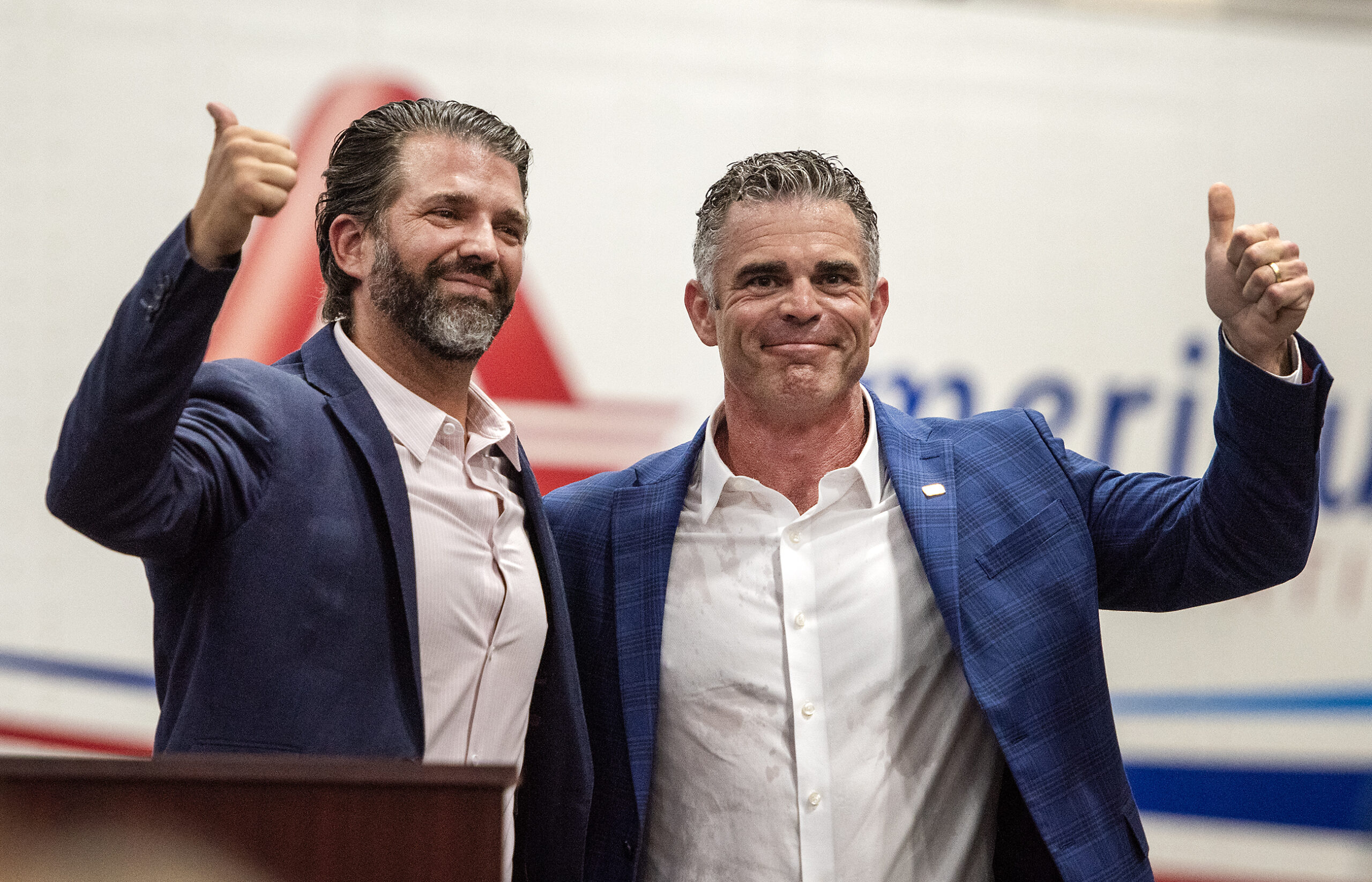
From inflation to abortion, Wied and Lyerly at odds on the issues
During their recent debate, Wied and Lyerly squared off on inflation, abortion, immigration and education.
On inflation, Wied said he wants to cut government spending to bring costs down, calling inflation a “tax” on the lower and middle classes.
“It’s no different than each and every one of you in your own households. You have to look at every single budget, and that’s what I will bring to Congress,” he said. “We have to have a balanced budget. We have to move towards less spending.”
Beyond government spending, Lyerly argued that “corporate greed” also played an outsized role in driving inflation. She proposed creating new federal programs to help address rising housing costs, which have contributed to inflation.
“We can use federal lands for public development,” she said. “There are many things that we can do as members of Congress that will help to take the pressure off of the housing market and get first-time home buyers into their homes.”
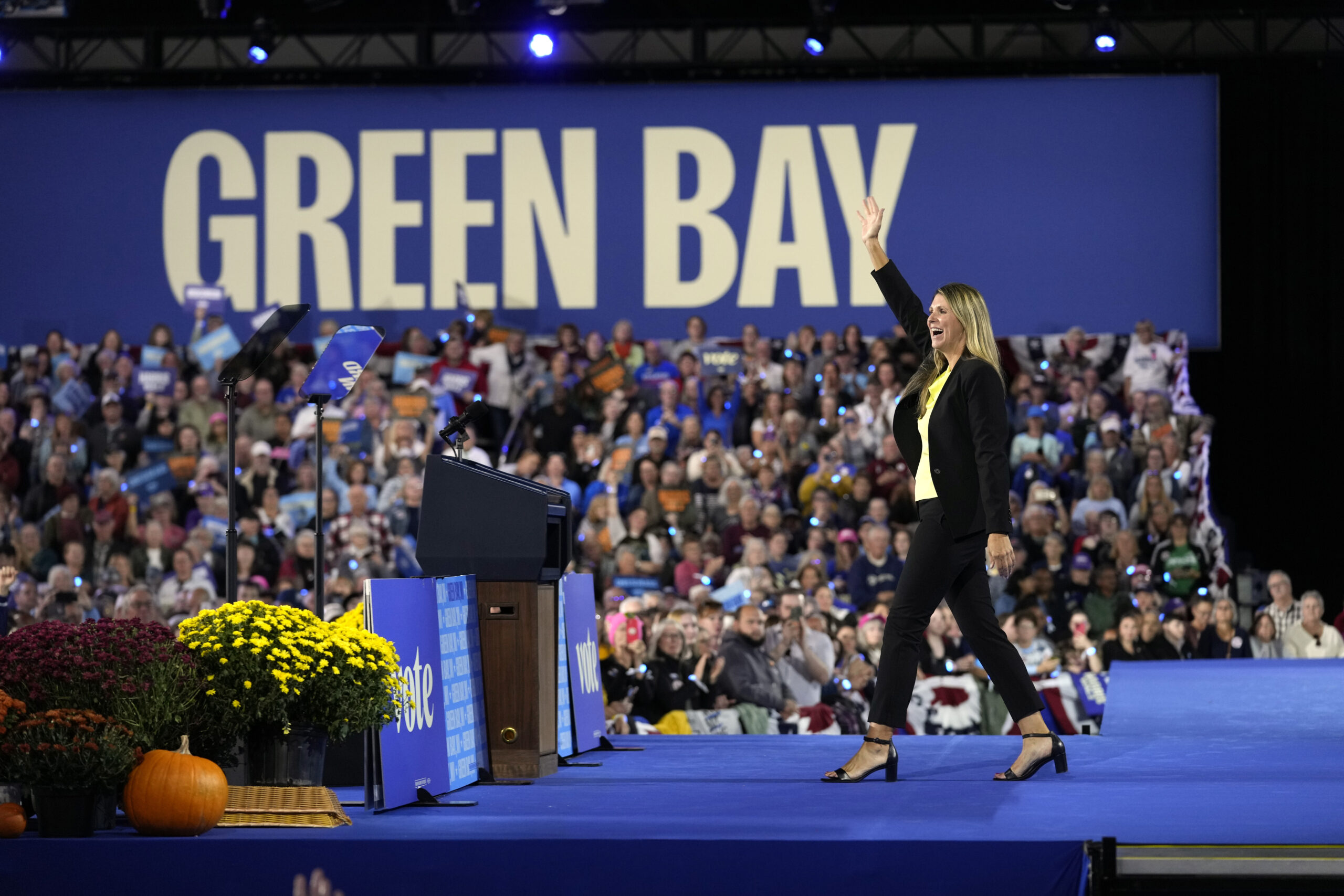
On abortion, Wied has said he believes the issue is one for the states and not the federal government. During the debate, he was asked what he believes Wisconsin’s abortion policy should be. He didn’t expressly answer.
“It won’t be at the federal level, so that’s not on my plate,” Wied said. “I am going to continue to work hard on the things that I can control in the United States House of Representatives.”
Meanwhile, Lyerly said she believes women should “have the freedom to make our own choices” about their bodies. She called Wied’s position of leaving abortion policy up to the states a “cop out.”
“That tells me that in states with bans, where mothers die at a rate three times greater than in states without bans, you’re OK with that,” she said.
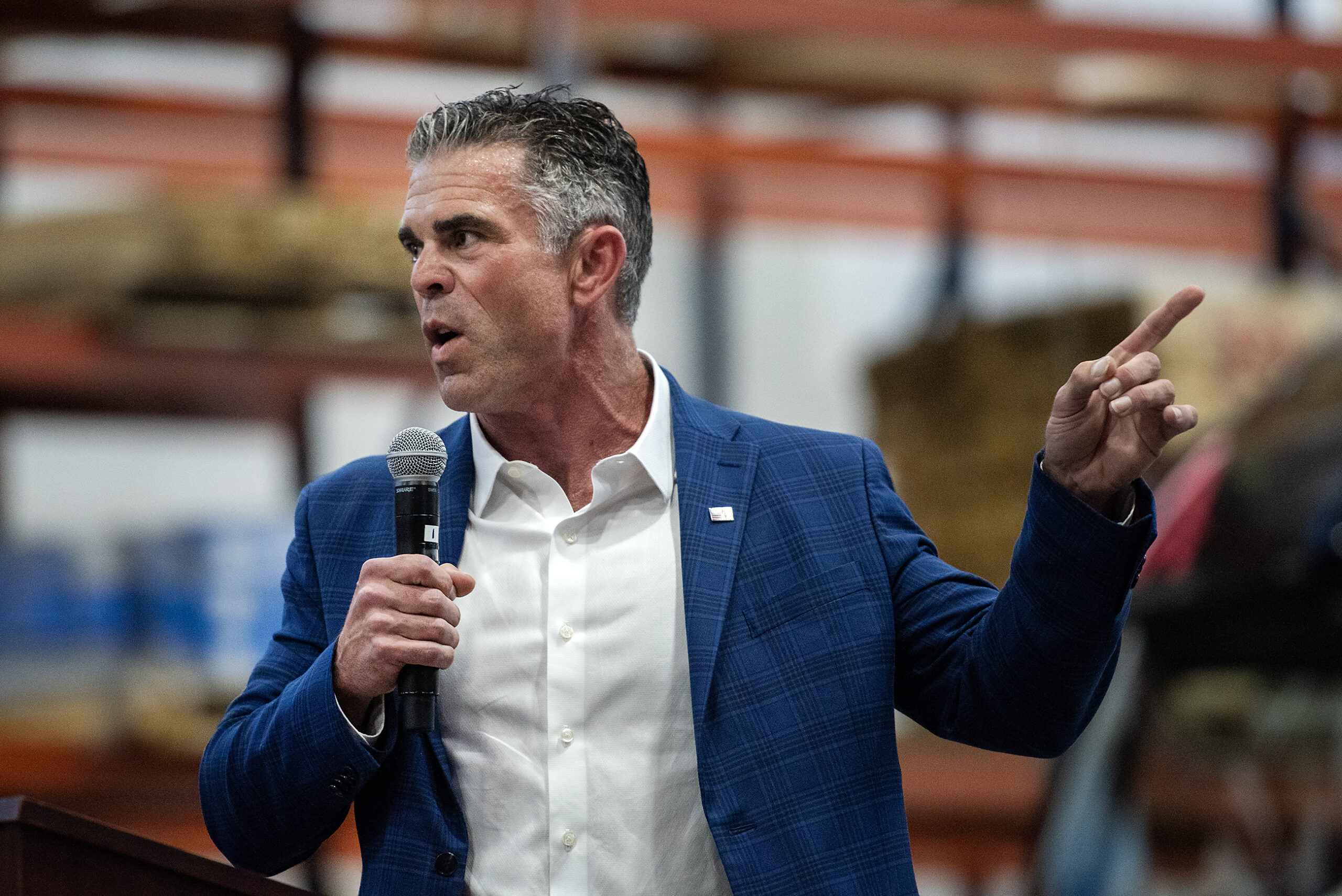
On immigration, Wied said he is in favor of bringing back the pandemic-era “Remain in Mexico” policy and completing the border wall.
Lyerly said she would support a bipartisan border security bill that was negotiated by Senate Republicans and Democrats, but was derailed by Trump.
“The people who pulled my opponent’s strings said no (to the bill),” Lyerly said. “They said no because they want to use it for politics. They want to use it to induce fear.”
Wied argued the bill didn’t do enough to reestablish the policies of the Trump administration.
“This bill does not go far enough,” he said. “We need to close this border down (and) find an effective immigration policy.”
During the debate, a University of Wisconsin-Green Bay student asked both candidates for their views on bringing the cost of college down, and on student loan relief.
Wied was not in favor of student loan forgiveness, but Lyerly said she was open to the idea. Both said more needs to be done to get students into the skilled trades, but Lyerly criticized Wied for his support for ending the U.S. Department of Education.
“By eliminating the Department of Education, that would eliminate a number of funding streams for students,” Lyerly said. “Not only that, but it would drive states and local municipalities into chaos.”
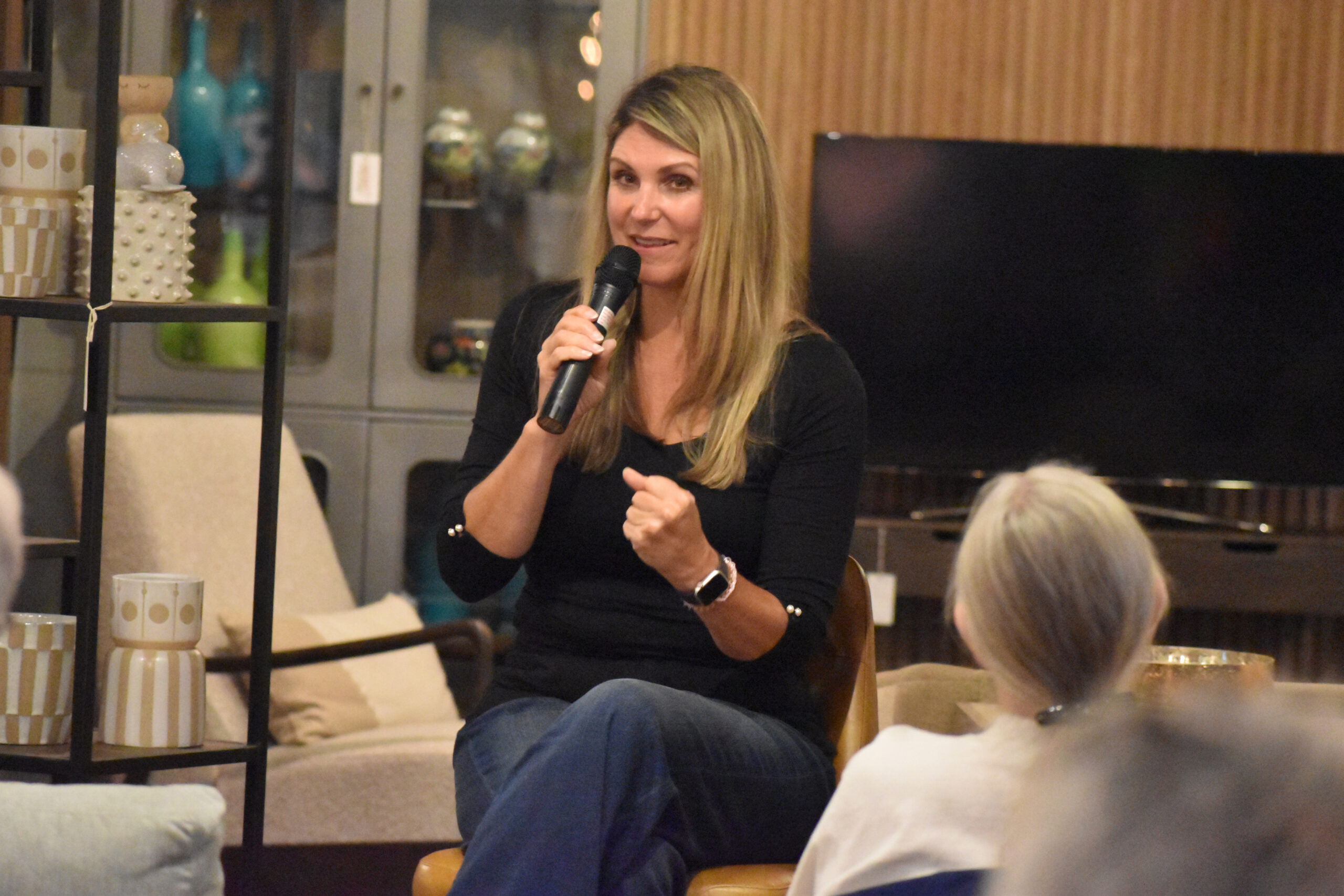
Wied said he believes the Department of Education is essentially micromanaging schools.
“You should have the control to run your schools here locally, and I do not believe in the federal government teaching our children,” he said. “We have federal bureaucrats continuing to get involved in our children’s education.”
What do their supporters say?
Whether it’s Wied or Lyerly, the winner of the 8th District will be a first-time officeholder. Supporters for both think their candidate is up for the challenge.
De Pere resident Bob Gryboski said he’s known Wied for years. Gryboski runs a construction company with his brother and thinks Wied’s business background makes him the right candidate.
“Being a small business owner, you get to meet people on all scales of the income scale, and you need to interact with those people and work together to get things done,” Gryboski said. “He’s going to have a really good sense of the community in general.”
Gryboski said he thought Trump’s endorsement would help Wied, even as he acknowledged the former president had been “a polarizing individual.”
“I agree with many of the policies that (Trump) supports,” Gryboski said. “By Tony getting that endorsement, that would indicate that he obviously also will be supporting a lot of the policies.”
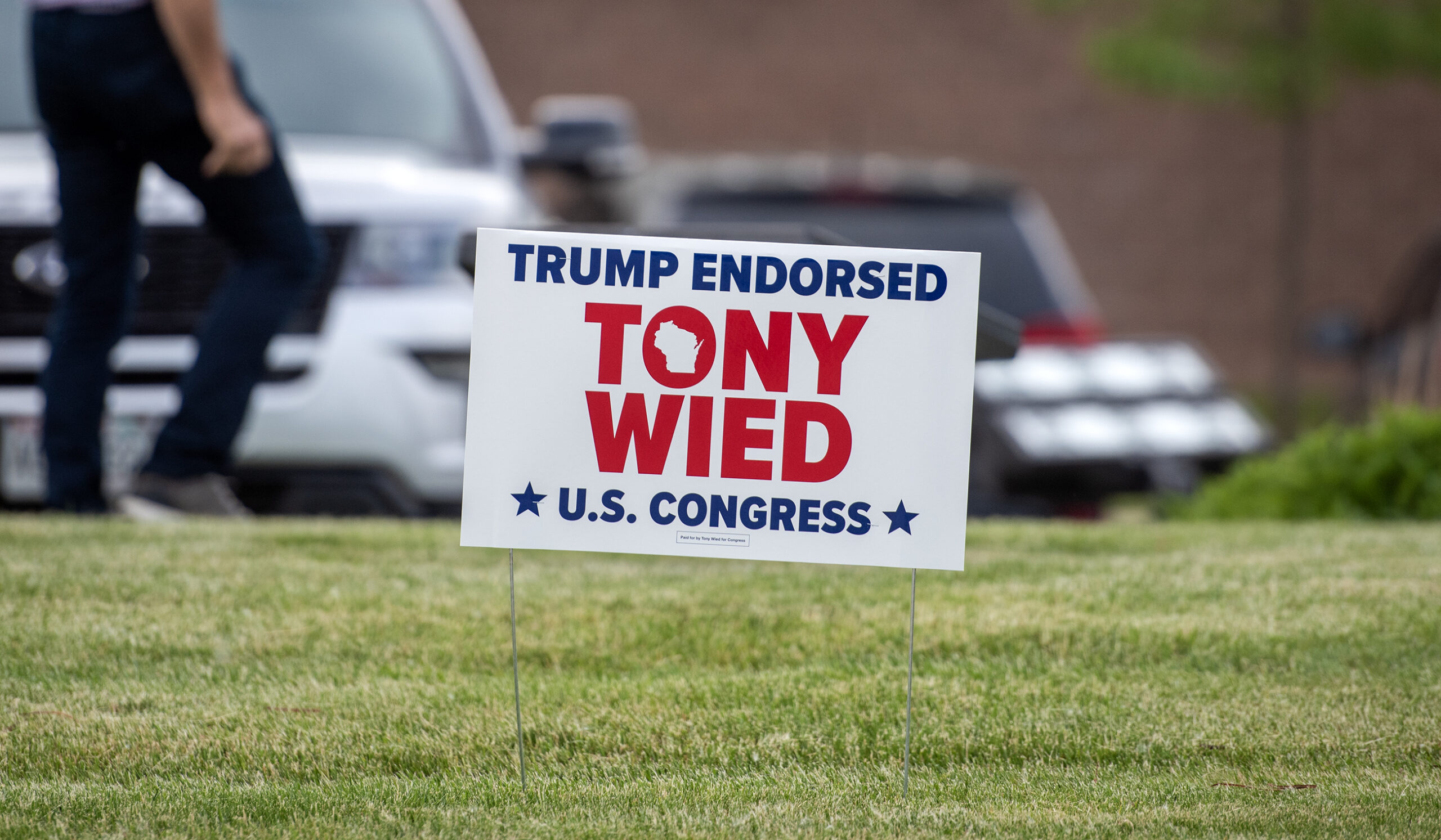
Shawano resident Lora Perdelwitz is a Lyerly supporter who got to know the candidate at few campaign stops in Shawano. She says she feels like Lyerly listens to voters in the same way she listens to her medical patients.
“I want someone representing me who has that trait, because if you’re listening to the people you’re representing, you can represent what their wants and needs are,” Perdelwitz said. “The things she talks about are in alignment with my wants and needs at this point, as far as reproductive rights.”
Perdelwitz said Trump’s endorsement of Wied is “incredibly concerning,” saying the Jan. 6 insurrection remains top of mind for her.
“To me, that’s a huge red flag,” she said. “If you’re using his endorsement to get you votes, that’s a little frightening.”
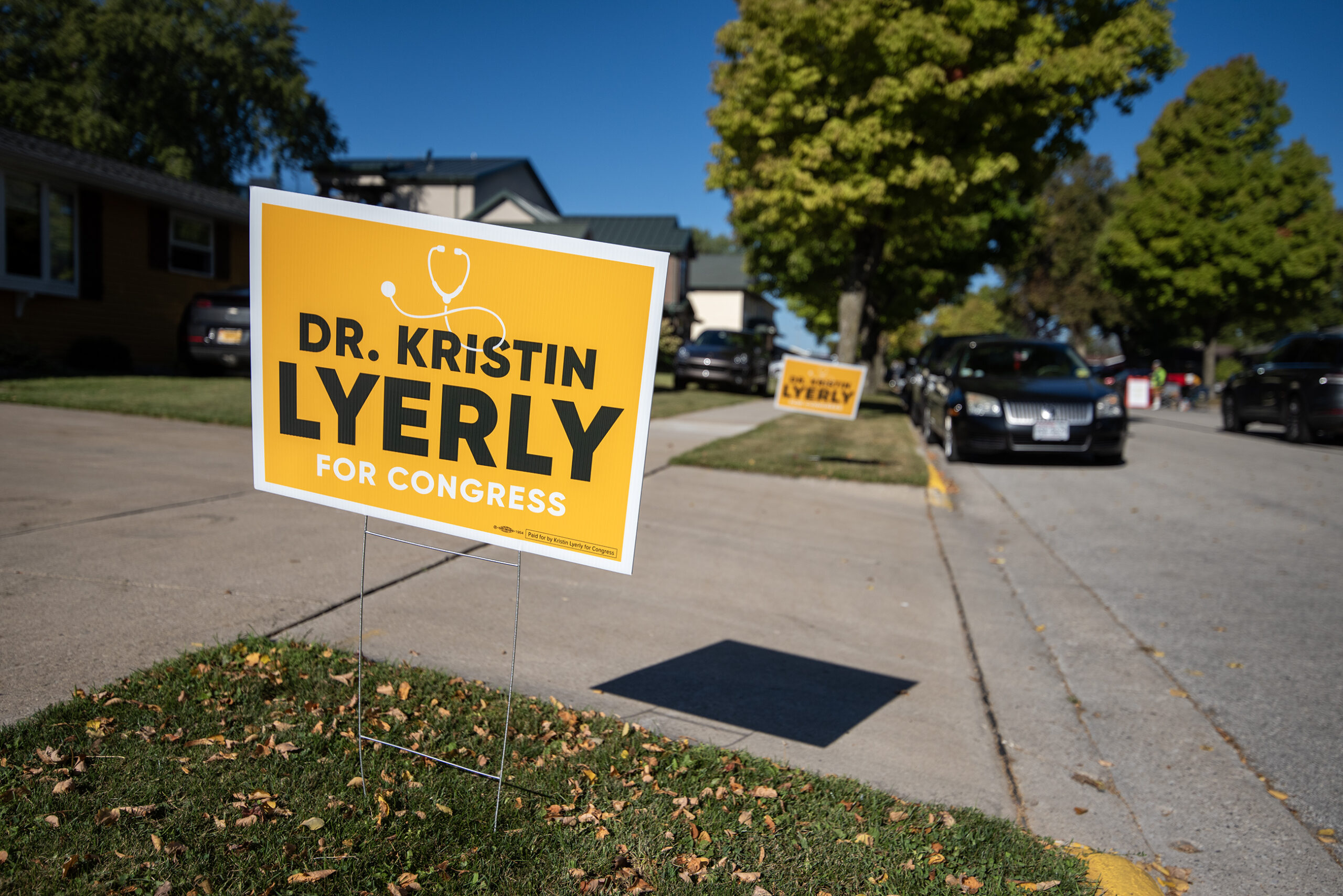
As of Sept. 30, Lyerly had raised and spent more money than Wied, according to the Federal Elections Commission.
Lyerly raised more than $2 million dollars, spent roughly $1.4 million and had roughly $603,000 of cash on hand heading into the final leg of the race. Wied raised more than $1.3 million, spent about $1.1 million and had roughly $230,000 of cash on hand.
The 8th Congressional District has been held by Republicans since 2011, and the Cook Political Report rates the seat as “solid Republican.”
Wisconsin Public Radio, © Copyright 2025, Board of Regents of the University of Wisconsin System and Wisconsin Educational Communications Board.

